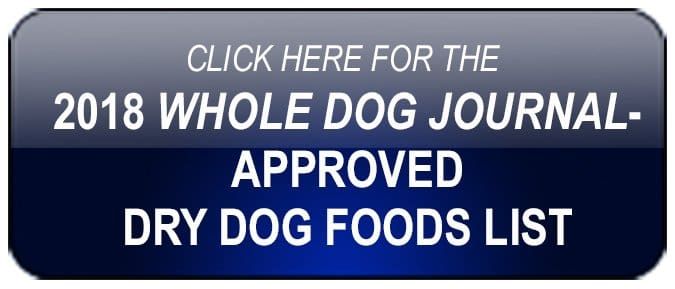
The latest trend in pet food has to do with ingredient provenance. Over the past year, a number of the companies who make some of the most expensive foods on our “approved foods” lists are making strong claims about their ingredients. It’s not enough to promote “All ingredients from North America,” or the more pointed claim, “No ingredients from China.” Today, a number of companies promote the fact that they formulate their dog foods with sustainably farmed grains, fruits, vegetables, and herbs, and/or humanely raised, grass-fed, and/or free-range food animals and wild-caught fish.
In the cases where the claims are true, it’s a fantastic development for those who can afford these products and the consciousness that drives the impulse to include them. Many of the practices of conventional factory farming of plants and animals harm the environment and are intrinsically cruel to animals. But there is no getting around the fact that so-called “ethically sourced” alternatives are more expensive, and not all pet owners can afford foods that are made with sustainable/humane ingredient sources. But if even some pet owners can afford them, even just some of the time, it helps these companies and the farms from which they buy their ingredients. Every little bit helps.
There are divergent views of this trend within the pet food industry. Long-time industry observers grimly point out that the supply of “ethical” ingredients is incredibly limited, and that using this sort of ingredient in pet food is profligate and perhaps even unconscionable with starving people in the world. In contrast, cheerleaders for the industry promote any trend that sells more pet food – and the enthusiasm for ethically sourced ingredients is strong and growing.
And when a trend gets popular enough, even the industry giants lumber in the right direction. In 2010, Mars Petcare, the world’s largest pet food company, with more than $17 billion in annual sales, pledged to buy fish only from fisheries or fish farms that are third-party certified as sustainable. And, after credible articles were published in 2014 and 2015 about the use of human slaves on factory fishing boats, Mars and Nestlé Purina (the largest pet food company in the United States, with about $12 billion in annual sales) both announced that they will take steps to ensure their pet food supply chains are free of human rights abuses and illegally caught seafood.
This is all great news – but don’t take any company’s claims of ethical ingredient provenance for granted. Make sure to look for certification by a legitimate third-party auditor. Today, there are a number of companies that provide verification and certification of not just organic, but also socially, environmentally, and/or humanely responsible ingredient suppliers.







